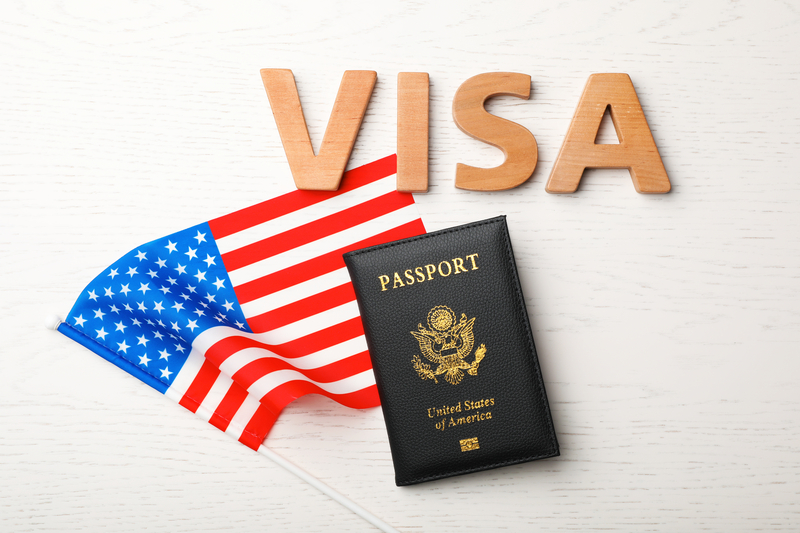
A crisis has erupted in U.S. higher education as thousands of international students suddenly lost their visas. U.S. Secretary of State Marco Rubio’s original statement claimed only 300 visa cancelations. The American Immigration Lawyers Association revealed that the actual number surpasses 4,700 students from more than 250 universities and colleges across the country.
The Trump administration justified these cancelations by using an old 1952 foreign policy law that suggested these students worked against national interests. Many affected students never received proper explanations for their visa cancelations. Some even lost their legal status over minor issues like speeding tickets. On top of that, the Department of Homeland Security created a task force that makes use of information analytics to check international students’ social media histories. This could lead to more visa cancelations. Students haven’t remained passive – they filed 65 lawsuits, and some courts already granted temporary orders to restore their legal status.
Trump Administration Cite National Security
Rubio leads the charge on visa revocation strategy. He stated in March that the State Department had revoked “more than 300” student visas. “It might be more than 300 at this point. We do it every day. Every time I find one of these lunatics, I take away their visas,” Rubio said during a news conference.
The Trump administration’s broader immigration crackdown shows significant impact. Recent data reveals 1,818 international students from over 270 U.S. institutions have lost their F-1 or J-1 status as of April 23. Arizona State University students faced 100 visa revocations.
Rationale Behind Visa Cancelations
Rubio stated his reasons for visa cancelations clearly: “We are not going to be importing activists into the United States. They’re here to study. They’re here to go to class. They’re not here to lead activist movements that are disruptive”.
The Secretary targets students who join campus protests, especially those with pro-Palestinian views. Rubio stressed during press conferences that visas are “a gift” and “not an unalienable right”. He warned students that supporting groups behind “disruptive criminal activities” would lead to visa revocation.
The administration has tightened screening for student visa applicants. A March 25 State Department cable, which The Guardian obtained, requires detailed social media checks for all student visa applicants. Officers must save screenshots of “potentially derogatory” content that creates permanent digital records for denials.
Use of 1952 Immigration and Nationality Act
These deportations rely on a seldom-used provision in the Immigration and Nationality Act of 1952. This provision lets the Secretary of State deport noncitizens if their presence might cause “potentially serious adverse foreign policy consequences for the United States”.
The McCarran-Walter Act emerged during peak Cold War fears about communist infiltration. This law combined various immigration statutes and gave the government broad powers to reject entries affecting native wages and to promote family reunification.
Immigration attorneys point out that these provisions rarely applied to political expression before. Kathleen Bush-Joseph, an attorney with the Migration Policy Institute, describes the current approach as an “all-encompassing” strategy. “The Department of State works to cancel student visas while coordinating with the Department of Homeland Security,” she explains.
Legal Experts Challenge Visa Revocations in Court
International students have mounted legal challenges across the United States in response to the wave of visa revocations. Students and their attorneys have filed lawsuits in at least 16 states that argue the government’s actions violate constitutional rights and federal law. CNN‘s tally shows more than 1,000 students and graduates have lost their visas or statuses, which undermines their chance to stay in the country and continue their studies.
Lawsuits Over Due Process Violations
Due process violations form the core legal argument in these cases. Students report that officials canceled their visas without explanation, proper notice, or any chance to respond. Two federal class action lawsuits now challenge these terminations collectively – one in Georgia representing 133 students and another in New Hampshire covering over 100 students. The Department of Homeland Security removed students from the Student and Exchange Visitor Information System (SEVIS) and terminated their legal status without following required procedures.
Federal Judges Issue Temporary Restraining Orders
The federal courts’ decisions increasingly favor affected students. Judges in Massachusetts, New Hampshire, Wisconsin, Montana, Oregon, Washington and other states have issued emergency orders to prevent deportations and reinstate student status. Georgia’s Judge Victoria Calvert ordered the government to restore all 133 plaintiffs’ legal status by April 22. Oregon’s Judge Michael McShane took similar action by blocking two students’ deportation and ordering their visa status restored.
ACLU and Immigration Attorneys Weigh in
The American Civil Liberties Union leads these legal challenges. ACLU’s New England affiliates filed a class action lawsuit for students across five states who lost their F-1 status without explanation. “The Constitution protects everyone on American soil, so the Trump administration cannot ignore due process,” said ACLU-Georgia’s Senior Staff Attorney Akiva Freidlin.
Students maintain certain rights even after visa revocation, immigration attorneys note. Legal experts point out that visa revocation alone cannot terminate legal status. The Supreme Court has affirmed that all people in the U.S. have constitutional protections, whatever their immigration status.
Universities Struggle to Support International Students
Administrative staff at universities nationwide were caught off guard. They found that there was student visa revocation not through official government notices but during routine database checks. Universities rushed to help affected international students while trying to make sense of unclear federal guidance.
Colleges Discover Revocations Through SEVIS Checks
Staff at higher education institutions first learned about visa revocations during routine audits of the Student and Exchange Visitor Information System (SEVIS), a web-based platform that the Department of Homeland Security manages. Stanford University’s administrators found that six students and recent graduates lost their visas only after checking the database.
The Associated Press reports that 1,024 students at 160 colleges, universities and university systems have lost their legal status since late March. NAFSA, an association of international educators, believes this number could reach 1,300. Inside Higher Ed counts more than 1,500 students with suddenly revoked visas at over 240 universities.
This method shows a fundamental change in protocol. “Up until Trump took office, it was really up to the designated school officers to initiate that revocation in SEVIS,” explained Jeff Joseph, president-elect of the American Immigration Lawyers Association.
Legal Aid and Academic Accommodations Offered
Universities have created detailed support systems to help affected students. George Mason University has reached out to federal officials to understand why these terminations happened and is looking into legal options. The University of Massachusetts added more information to its Federal Actions webpage with guidance for international students, including FAQs, emergency planning resources, and visa threat response instructions.
Several institutions have taken practical steps to help:
- Expanded Student Legal Services now offers free immigration-related legal support
- Created referral lists of immigration attorneys for personal guidance
- Developed options for international students to continue studies in their home countries
- Made academic accommodations for students who might face deportation
University of Connecticut’s officials created teams to “review academic and support options for each student” while offering “logistical and emotional support”. All the same, Lafayette College associate professor Hafsa Kanjwal points out that “most campuses have not really provided reassurances to international students and faculty,” which leaves many feeling “fear and uncertainty”.
How Visa Cancelations Could Reshape U.S. Higher Education
American higher education’s economic foundation faces major disruption as visa restrictions threaten a vital source of income. Last year, international students added nearly $44 billion to the U.S. economy and helped support about 378,000 jobs across the country. Universities now face both short-term losses and fewer students enrolling in the years ahead.
International Enrolment and Tuition Revenue
The numbers paint a worrying picture. Boston College professor Chris Glass says international student numbers have dropped by more than 11 percent this year. This means about 130,000 fewer students and roughly $4 billion less in revenue. Many schools rely heavily on international students who pay full tuition rates to help cover costs for domestic students. Some small private colleges’ student body has up to 50% international students.
UC Berkeley professor Hany Farid sees long-lasting damage ahead. “What we are doing in this country now is going to be a generational-long impact,” he warns. “You are creating a multi-year impact on science and discovery and innovation that will cripple the U.S. 10, 20, 30 years down the line”.
Potential Diplomatic Fallout with Affected Countries
The damage extends well beyond campus borders. Chinese students’ interest in U.S. education has dropped 40 percent since January 2025. They now prefer studying in countries like Germany, France, and China. China has even warned its citizens about studying in America.
This exodus puts America’s tech leadership at risk. International students earn more than half of all Ph.D.s in computer science, engineering, math and statistics at U.S. universities. These changes could affect American innovation for decades.
The Future of International Education in America
The wave of student visa cancelations may create a defining moment in American higher education history. These visa cancelations affect just a portion of international students yet they represent a transformation in America’s approach to global education exchange. The outcome of pending lawsuits may shape international education policy for years to come.
SEE ALSO: How International Students Can Prepare for U.S. College Admissions













.jpg)
